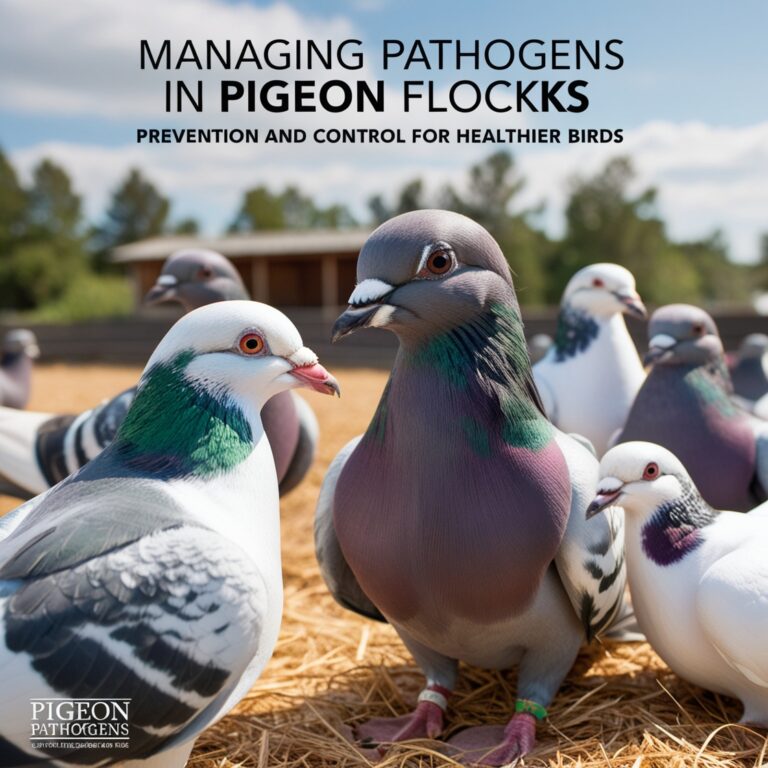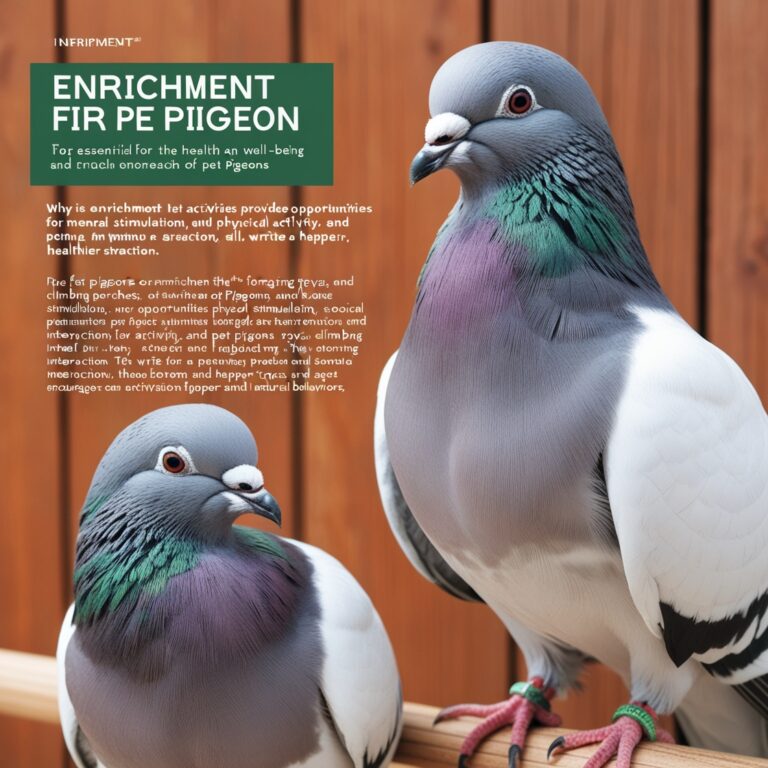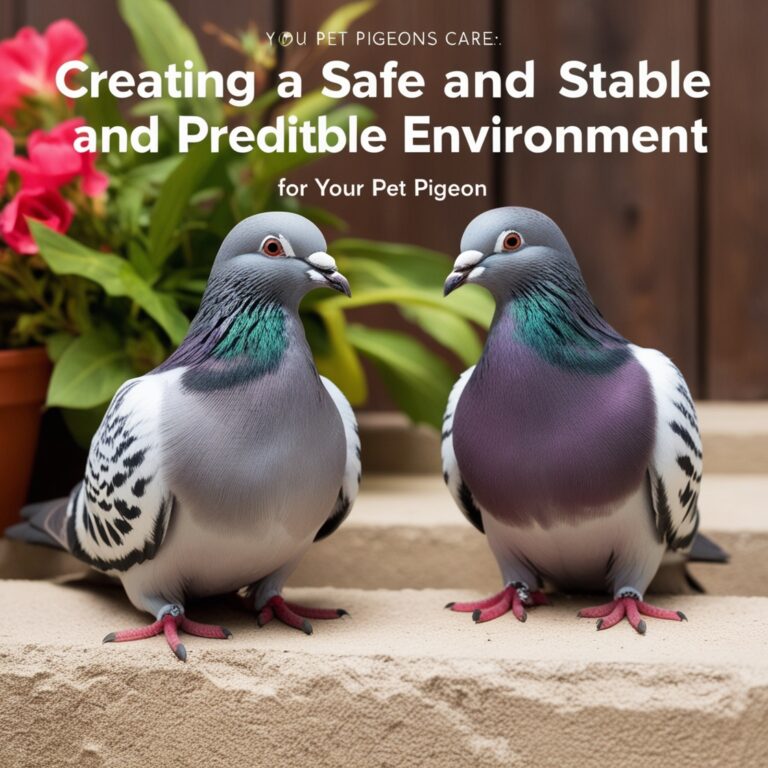Pigeons as Sentient Beings Pet pigeons
Empathy and Understanding for Pet Pigeons
Pigeons as Sentient Beings Pet pigeons often misunderstood and overlooked, possess intelligence, loyalty, and unique personalities. those who share their lives with pigeons, understanding and empathy are essential for building a strong bond and ensuring the pigeons’ well-being. We can create a fulfilling life for these remarkable birds when we truly understand their needs, emotions, and behaviors. This article explores why empathy is essential in caring for pet pigeons, highlights ways to cultivate understanding, and provides actionable tips for providing, them with a rich, supportive environment.
1. Recognizing Pigeons as Sentient Beings
Pigeons are intelligent creatures who can form attachments, remember faces, and navigate complex social dynamics. Studies have shown that pigeons have impressive memory can recognize themselves in mirrors, and even understand abstract concepts such as time and space. When we acknowledge these abilities, we realize they are not merely pets to be fed and housed but sentient beings capable of forming deep bonds with their caregivers.
The first step in developing empathy for pet pigeons is recognizing them as individual beings with preferences, personalities, and needs. Just as dogs or cats show affection and seek companionship, pigeons too thrive in environments where they feel safe, valued, and understood.
2. Understanding the Emotional World of Pigeons
Pigeons exhibit a range of emotions, including joy, fear, curiosity, and even jealousy. A pigeon’s behavior often reflects its emotional state, and by tuning into these cues, owners can respond appropriately. For instance, a pigeon that puffs up its feathers, coos softly, or performs a “bowing” display is showing affection. Conversely, when frightened, pigeons may freeze, flap their wings, or try to retreat.
Empathetic pigeon owners learn to read these emotional signals, helping them build a stronger bond and respond in ways that make the pigeon feel secure. For instance, moving slowly around a nervous pigeon or speaking softly can help reduce stress, whereas approaching them too quickly or loudly may create fear and erode trust.
3. Building Trust with Patience and Care
Building a bond of trust with a pigeon requires patience and consistency. Many pet pigeons, especially those rescued from challenging environments, may carry trauma or exhibit fearful behaviors. Empathy plays a crucial role here, as owners must understand that trust cannot be forced; it must be nurtured through positive interactions and patience.
To gain a pigeon’s trust:
- Spend time near them in a calm manner without trying to touch or pick them up initially.
- Offer treats by hand, allowing the pigeon to approach at its own pace.
- Avoid sudden movements, loud noises, or any form of forceful interaction.
Over time, consistent, gentle behavior will help the pigeon understand that you are a safe and trustworthy presence.
4 Providing Appropriate Space and Stimulation
Pigeons are highly active and social creatures that benefit from adequate space and mental stimulation. Confined spaces or monotonous environments can lead to boredom, stress, and even aggression. To empathize with a pet pigeon, imagine yourself confined to a small area without room to stretch, explore, or interact.
Ideal pigeon care includes:
- Space to fly: Whenever possible, allow pigeons free flight within a safe, enclosed area. Flying is essential for their physical health, mental well-being, and overall happiness.
- Social Interaction: Pigeons are flock animals and require social interaction to thrive. If owning more than one pigeon isn’t possible, make time to interact daily.
- Enrichment activities: Providing items like mirrors, bells, or puzzle feeders can stimulate their curiosity and prevent boredom.
Understanding the pigeon’s need for space and stimulation helps caregivers create a more enriching, healthy environment.

5. The Importance of Diet and Health Care
A balanced diet is essential for a pigeon’s health and well-being. Many new pigeon owners underestimate the importance of a varied diet, assuming seeds alone are sufficient. In reality, a pigeon’s diet should include grains, seeds, fresh greens, and occasional fruits to ensure they receive all necessary nutrients.
Beyond nutrition, health care is crucial. Regular vet visits, keeping an eye on physical symptoms, and ensuring they are free from parasites like lice or mites are essential steps. Understanding that pigeons, like other pets, experience pain and discomfort helps owners empathize with their health needs, prompting proactive and preventative care.
6. Creating Emotional Bonds Through Play and Interaction
One of the best ways to deepen a bond with a pet pigeon is through play and interaction. These intelligent birds enjoy engaging activities and love the companionship of humans they trust. Playing with a pet pigeon can include simple activities like rolling a ball back and forth or holding up a shiny object for them to inspect.
For pigeons that are more attached to their human companions, gentle cooing, or mimicking their soft sounds, can be comforting and establish rapport. Empathy in this context means understanding that the pigeon seeks companionship and enjoys bonding through playful or gentle, focused interaction.
7. Recognizing and Responding to Signs of Distress
Empathy involves noticing and responding to signs of distress. Pigeons may show they are uncomfortable or frightened through their body language. For example:
- Fluffing up their feathers excessively: This may be a sign of illness or discomfort.
- Reluctance to fly or move: This could indicate injury, illness, or extreme fear.
- Hiding or trembling: These are signs of fear or anxiety.
By staying attuned to these cues, owners can respond quickly, providing comfort or seeking veterinary care if needed.
8. Respecting the Pigeon’s Autonomy and Boundaries
Respecting a pigeon’s autonomy is a fundamental aspect of empathy. Unlike dogs or cats, pigeons may not always want to be handled, especially if they have not been socialized from a young age. Forcing interaction can lead to stress and damage the relationship.
Instead, allow the pigeon to approach and establish contact on its terms. Over time, as the pigeon becomes more comfortable, it may seek out closer interaction. This respectful approach fosters trust and allows the pigeon to express its preferences, creating a more harmonious bond.
9. Acknowledging the Value of Each Pigeon’s Personality
Each pigeon has a unique personality—some may be playful and curious, while others are calm and observant. Recognizing these traits helps caregivers connect more deeply with each bird. Rather than treating them as identical, empathic caregivers acknowledge and respond to these individual differences.
Understanding these characteristics can make a difference in how you train, play, and interact with each pigeon, enhancing the quality of care and building a fulfilling bond.
10. Developing a Lifelong Bond
Empathy and understanding for pet pigeons lay the foundation for a lifelong, rewarding bond. When pigeons are cared for with respect, patience, and love, they return that affection in unique ways—often cooing softly around their caregivers, engaging in playful behaviors, or following their humans around as a gesture of loyalty.
By understanding their emotional and physical needs, providing adequate space and stimulation, and respecting their individuality, pigeon owners not only ensure their birds’ well-being but also enrich their own lives with the companionship of these intelligent and affectionate birds.v







